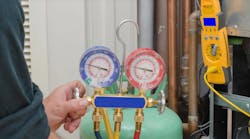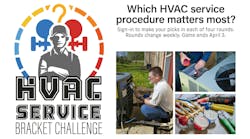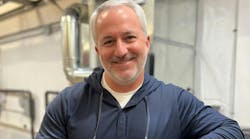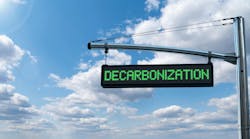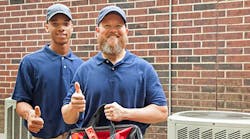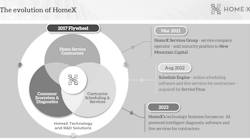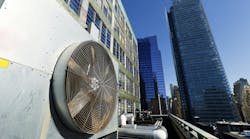There has been a flood of emails and phone calls since my last HotMail article: "The Race to Control Quality." The conversations have been both for and against the idea. Let's take a look at the types of responses and provide some clarity about self verification and how it may shape up for contractors in the near future.
Recent Developments
Last week at the Midwest Residential Energy Conference, the keynote speaker, Joe Lstiburek questioned the need for energy raters to verify work completed by the HVAC industry. He said, "The government trusts each of us to file our own taxes, why can't they trust licensed contractors to verify the quality of their own work? "That was an extremely bold statement right in the middle of an energy conference.
The idea generated significant side conversations between the HVAC contractors and the raters in attendance. Not surprisingly, raters were threatened by the questions, but contractors congregated to discuss the idea at length throughout the remainder of the conference.
At the conference session "How to Measure Airflow" the concept of self-verification by the HVAC industry was peppered throughout the training and was the subject of in depth discussions both before and afterwards.
One member of a state energy office considered the idea of HVAC contractors checking their own work as being in opposition to his state’s energy code, until he recognized the opportunity for double and triple compliance and to significantly increase energy efficiency in his state.
Recently the California Energy Commission responded to pressure from legislators to improve commercial system verification by issuing a ruling on Acceptance Testing. This ruling enables qualified mechanical contractors to self verify the performance of the systems they design and build, in addition to filing their own state-mandated documentation.
So self-verification is already a reality today and may be the solution and opportunity that qualified and committed contractors have been looking for.
Will Raters Still be Needed?
Several calls from long-time energy raters concerned about the prospects and the potential future relevance of raters were answered with the assurance that their role in HVAC rating would still be badly needed and that work for well-qualified raters will probably increase.
Not all HVAC contractors will be willing to meet the pre-qualifications necessary to self-verify their own systems. The proposed self-verification will require evidence of training and certification of testing technicians and company owners. The rest of the industry will continue to use and may very well increase their use of third party verifiers.
NCI has trained several hundred energy raters in the skills and technology required to measure and rate real HVAC system performance. Most professional raters make exceptional air balancers, and many excel at carbon monoxide and combustion efficiency testing and adjustment. There will always be a need for skilled and committed energy raters inside and outside the regulatory world.
There may be an increased need for qualified raters with valuable HVAC measurement skills to provide sample testing for quality assurance associated with self-verification programs. There’s surely a role in Quality Assurance for occasional third party verification. In fact, as compliance increases, this role may exceed current HVAC rating numbers.
Are Contractors Capable of Self-Verification?
One representative of a State contractor’s license board posed the question “are contractors capable of self verification?” The ensuing discussion questioned the trust his board had in those they license. "Well, I guess we should trust them after all" concluded that conversation. Oh really?
When it comes to qualifications, it makes sense that self-verifying contractors each meet prerequisite requirements for experience, training, certification and ownership and calibration of appropriate test instruments. Only these contractors would be permitted to verify their own work.
Besides, what other industry requires an outside industry to verify the quality of each installation they complete? How low we must have fallen to forfeit control of our industry and allow others to take it from us. Why would our so-called industry leaders support and pursue relinquishing our regulation to another industry? Where is their allegiance?
What Will Self-Verification Look Like?
Initially, the idea was proposed that HVAC system verification would mirror the pattern of verification that energy raters employ today. However, since a change is in the air, why not step it up a notch?
One reason many contractors quote for not complying with the energy rater model is that the assurance of efficiency and quality provided by rater inspection and testing protocols is very questionable. HVAC practitioners have never really embraced or accepted building science methods of HVAC verification.
One advancement in verification would be to actually turn the system on during verification. How radically different of an idea is that? Tests and measurements could then be taken on operating systems and actual performance could be compared to the manufacturer’s published specifications and the design conditions. It’s clear that design alone has failed to meet today’s efficiency requirements.
Will Contractors Increase Compliance?
The answer is yes. Since many self-verify already, that group would probably more than double the existing verification compliance percentages.
The cost obstacle would also be overcome. Self-verification would reduce verification costs an estimated 50% to 75%. That alone would also increase compliance.
Consumers often decide not to pay for third party verification because of the cost. They also question the common sense of an outside industry checking our industry’s work. To consumers the benefit is low and appears to be forced energy efficiency red tape. Real verification has already been proven to work by thousands of HVAC contractors in the free market where consumers voluntarily pay for it every day.
Where Did We Go Wrong?
Over the last few decades our industry, as a whole, lost focus on our main mission of comfort. The fear of energy scarcity drew all the attention to the equipment. Regulators quickly learned in the 1970’s and 1980's that a few manufacturers are much easier to force energy efficiency quotas on than thousands of independent contractors.
Contractors took the bait and stepped into the low bidder swamp. As a group we have to take responsibility for that mistake. We also shifted our focus from our core product of delivering comfort, to selling boxes. Government energy groups continued to take the easy route and promote equipment efficiency and that’s what we’re stuck with today.
The call today is for contractors to man-up (and woman-up) and reclaim our rightful position as designers, manufacturers, installers and verifiers of HVAC systems that we lost years ago. Our duty is to move beyond the sorry position of low bidders who simply sell somebody else's box. Premium contractors sell premium well-performing systems, in which the box is only one component. Our charge is to first increase the quality and efficiency of our systems, then proportionally increase our prices to what a well-operating system is worth. This happens, because we test, adjust and verify it to be worth the higher price.
Manufacturers who embrace and support this movement will also be ahead of the curve and solidify their relationships with the cream of the crop contractors. We forfeited our rightful role as comfort system builders decades ago by turning our focus to equipment efficiency. Today we can take back that role, by turning once again to well-performing systems that we are willing to self-verify and certify to our customers that our systems deliver what we promise.
Let's prove we can outperform the regulator’s quest for energy efficiency and consumer quality assurance through improved performance and self-verification. Many in this industry are prepared and willing to step into this position and are already outperforming the level of verification being provided by regulated programs today.
Rob “Doc” Falke serves the industry aspresident of National Comfort Institute an HVAC based training company and membership organization. If you're an HVAC contractor or technician interested in a free procedure detailing how to measure live duct temperature losses,contact Doc at [email protected] or call him at 800-633-7058. Go to NCI’s website at nationalcomfortinstitute.com for free information, articles and downloads.
